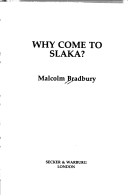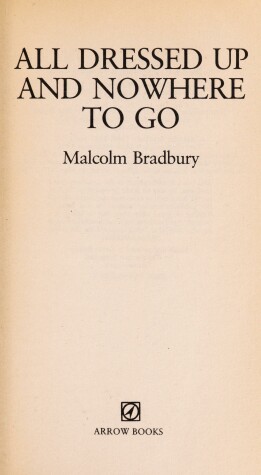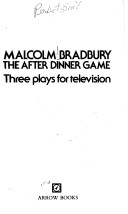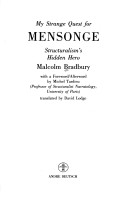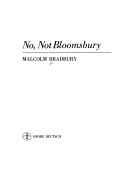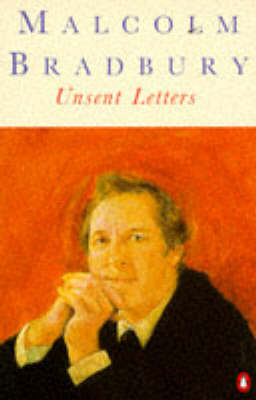Arena Books
10 total works
Slaka! Land of lake and forest, of beetroot and tractor. Slaka! Land whose borders are sometimes here, often further north, and sometimes not at all. Land of cultural riches, of a language that is easy enough to learn if you speak Finnish, or perhaps a little Hittite.
In this wickedly funny satire Malcolm Bradbury rescues from obscurity the country that formed the backdrop to Rates of Exchange. This, then, is the official guidebook to that mysteriously mobile piece of Europe. It confirms that Slaka is reassuringly the same - captivating, infuriating, bureaucratic, anarchic, comic and sinister. Within this deceptively slender handbook, stories and narratives bubble up between the lines to keep you reading and chuckling.
For Slaka is instantly recognizable to any traveller, anyone who has grappled with an unyielding language, argued with officialdom, outdrunk their welcome, mislaid their luggage, missed their train or just misjudged a tip. The guidebook to end - with any luck - all guidebooks.
'Malcolm Bradbury is a satirist of great assurance and accomplishment' Observer
In seven short stories Malcolm Bradbury takes a subtly ironic look at a variety of targets: American academics, provincial Britain, the aspirations of social workers, psychologists, the well-intentioned. . .
In addition he delights us with an irreverent and hilarious series of parodies of some of the greatest paradigms of the British and American literary scenes: a passage from Iris Murdoch's little-known The Sublime and the Ridiculous; Muriel Spark (a whole novel); the fifth volume of Durrell's Alexandria Quartet; John Osborne; J. D. Salinger and many more.
'A very funny book indeed. Malcolm Bradbury is a satirist of great assurance and accomplishment' Observer
'Bradbury's eye is sharp, his trigger-finger steady and unafraid, and his range and explosive power devastating' The Times
Welcome to Slaka! A land of lake and forest, of beetroot and tractor, of cultural riches and bloody battlefields.
Malcolm Bradbury's hilariously entertaining and witty novel, RATES OF EXCHANGE, introduces the small, eastern European country of Slaka. In less than two short weeks there, first-time visitor Dr Petworth manages to give a rather controversial lecture, get embroiled in the thorny thickets of sexual and domestic intrigues, fall in love, and still find time to see the main tourist attractions.
In the wickedly funny satire WHY COME TO SLAKA? Malcolm Bradbury offers the would-be visitor, la Dr Petworth, a wealth of information about the Slakan state, its pageantry and politics, its people and public figures, as well as some essential Slakan phrases: 'American Express? That will do very nicely.'
After spending a year teaching in an American university in the 1950s, Malcolm Bradbury returned to England only to realize that his native country had become nearly as mystifying to him as the American Midwest. As Britain marched toward a new decade, much of the country was changing inexorably, its agrarian past paved over by suburban developers, its quiet traditionalism replaced by beehive hairdos and shiny, glass-walled office buildings. And so, to confront this curious moment in British history, Bradbury turned to the sharpest tool in his arsenal: humor. In All Dressed Up and Nowhere to Go, he writes of a country balancing precariously on the boundary of two worlds, with the wry wit and keenly observant eye that have made him one of the twentieth century's greatest satirists.
The History Man tells the story of Barbara and Howard Kirk, their very modern marriage and their equally radical politics. Set in the fictional world of Watermouth University, Bradbury brilliantly captures the complexities of academic life, from tedious meetings and work-place machinations, to corruption and disruption at the highest levels. And as the unease and unhappiness behind the Kirk's relationship becomes apparent, so too does Bradbury's ability to dissect the human heart and character. His insightful, profound portrayal of a marriage in crisis is utterly convincing and compelling.
'Malcolm Bradbury has come up with a novel that simply must be read' ELIZABETH BERRIDGE, Daily Telegraph
'Extremely witty . . . Bradbury writes brilliantly' New York Times
'Very funny . . . a quite ruthless satire' Evening Standard
